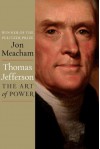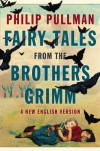Currently reading
400 Years Of Freethought
Thomas Jefferson: The Art of Power
Fairy Tales from the Brothers Grimm: A New English Version
Doubt: A History: The Great Doubters and Their Legacy of Innovation from Socrates and Jesus to Thomas Jefferson and Emily Dickinson
The Kingdom of Matthias: A Story of Sex and Salvation in 19th-Century America
History: Professional Scholarship in America
 Novick characterizes Higham’s historiography as celebratory and Whiggish, and Higham acknowledges the validity of these points in his review of That Noble Dream. In 1965, he explains, there seemed to be something to celebrate. Who knew the profession was standing on the edge of fragmentation? Sub-disciplines went their separate ways, post-modernists challenged what they believed was the naive epistemology of historians; instead of three acts ending in victory, we were left with four acts -- Higham’s self-congratulatory third act now seems like pride before the fall.But there’s still a lot of good information in the book, and nearly fifty years later, it’s a primary source for historiographers wanting to understand the point of view of the profession in the 1960s. Higham celebrates the professionalism that set itself against an earlier, “patrician” style of history, as he sets out to trace the “reciprocal relations between this emerging [American Historical] Association and the existing world of amateur scholarship.” (5) “College curriculums until the 1870s,” Higham says, “had room for very few history courses, and these were generally taught by professors primarily interested in the classics or in philosophy. As late as 1884 the four hundred American institutions of higher education had about twenty full-time teachers of history.” (4) A decade later, there were over a hundred. Professional historians’ began “cooperative action [to] establish and maintain their own standards of achievement instead of obeying some external authority.” (5) This “cooperative ethic,” Higham admits, “discouraged to some degree a quest for genius.” (6) The guiding light of professionalization, J. Franklin Jameson, expected “the insular and fraternal habits of professional association...to perpetuate the high level of mediocrity” that Jameson believed would (somehow) precede “truly great and profound work.” Higham adds that under the demands of teaching, the historian “does not easily hold to an extravagant and selfish idea of achievement.” (7) So much for professionalism fostering good work.In contrast, Higham tells the story of the “amateur historian [who] cherished his independence.” His example is John Bach McMaster, “a self-made historian who secured a professorship...because he wrote an outstanding book, a scholar who was notably absent at the founding” of the AHA, and who showed his unprofessional lack of solidarity by opposing Carnegie pensions for retired professors. (7) “The amateur historian expected his work to survive or perish on its individual merits; he was little concerned about its status as a ‘contribution’ to some continuing collective inquiry...He chose his subject for its intrinsic interest and wrote either for his own satisfaction or for a public that would accept him on his own terms.” I don’t think I need to comment on this, except to say that Ayn Rand could have written these words for Ellsworth Toohey in The Fountainhead.It’s interesting, the central role Higham gives Jameson, as “the administrative genius of the historical profession.” (26) His “committee formulated a precise and extensive plan for coordinating professional scholarship in American history.” (22) This, much more than the economic focus of Beard and Becker, seems like Progressivism at work.
Novick characterizes Higham’s historiography as celebratory and Whiggish, and Higham acknowledges the validity of these points in his review of That Noble Dream. In 1965, he explains, there seemed to be something to celebrate. Who knew the profession was standing on the edge of fragmentation? Sub-disciplines went their separate ways, post-modernists challenged what they believed was the naive epistemology of historians; instead of three acts ending in victory, we were left with four acts -- Higham’s self-congratulatory third act now seems like pride before the fall.But there’s still a lot of good information in the book, and nearly fifty years later, it’s a primary source for historiographers wanting to understand the point of view of the profession in the 1960s. Higham celebrates the professionalism that set itself against an earlier, “patrician” style of history, as he sets out to trace the “reciprocal relations between this emerging [American Historical] Association and the existing world of amateur scholarship.” (5) “College curriculums until the 1870s,” Higham says, “had room for very few history courses, and these were generally taught by professors primarily interested in the classics or in philosophy. As late as 1884 the four hundred American institutions of higher education had about twenty full-time teachers of history.” (4) A decade later, there were over a hundred. Professional historians’ began “cooperative action [to] establish and maintain their own standards of achievement instead of obeying some external authority.” (5) This “cooperative ethic,” Higham admits, “discouraged to some degree a quest for genius.” (6) The guiding light of professionalization, J. Franklin Jameson, expected “the insular and fraternal habits of professional association...to perpetuate the high level of mediocrity” that Jameson believed would (somehow) precede “truly great and profound work.” Higham adds that under the demands of teaching, the historian “does not easily hold to an extravagant and selfish idea of achievement.” (7) So much for professionalism fostering good work.In contrast, Higham tells the story of the “amateur historian [who] cherished his independence.” His example is John Bach McMaster, “a self-made historian who secured a professorship...because he wrote an outstanding book, a scholar who was notably absent at the founding” of the AHA, and who showed his unprofessional lack of solidarity by opposing Carnegie pensions for retired professors. (7) “The amateur historian expected his work to survive or perish on its individual merits; he was little concerned about its status as a ‘contribution’ to some continuing collective inquiry...He chose his subject for its intrinsic interest and wrote either for his own satisfaction or for a public that would accept him on his own terms.” I don’t think I need to comment on this, except to say that Ayn Rand could have written these words for Ellsworth Toohey in The Fountainhead.It’s interesting, the central role Higham gives Jameson, as “the administrative genius of the historical profession.” (26) His “committee formulated a precise and extensive plan for coordinating professional scholarship in American history.” (22) This, much more than the economic focus of Beard and Becker, seems like Progressivism at work.








